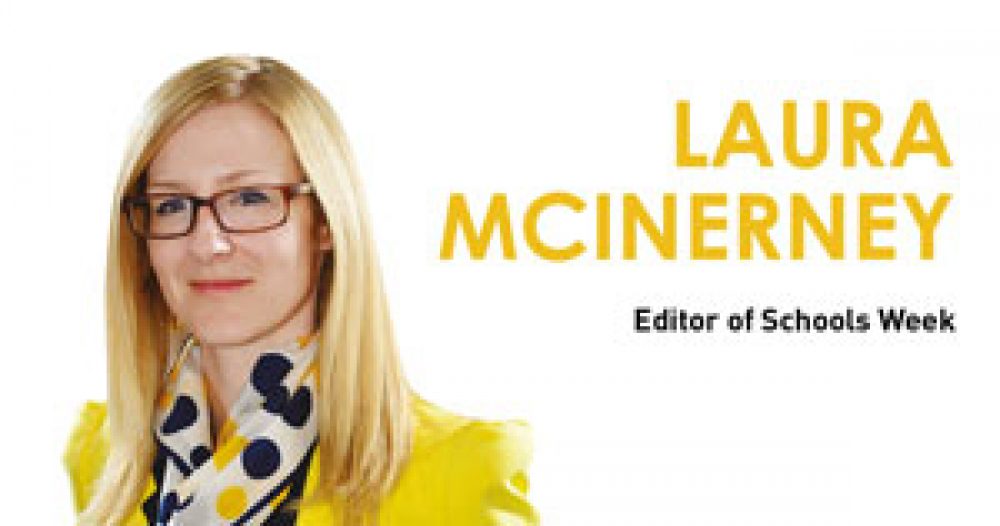“There is no way they will get this grammar school thing through.” That’s what former shadow education secretary Lucy Powell said at a debate on Sunday. It’s a comforting thought, but I’m not buying.
Governments tend to do what they want, regardless of the administrative hurdles placed in their way. Michael Gove used the Terrorism Act to force academy laws through parliament in five days. He also lost a judicial review into the legality of cancelling new school buildings. But the schools still didn’t get built.
Brutal experience tells that in education, as in all of politics, any instrument of democracy you think will hold a ridiculous policy at bay is likely to let you down.
Hence, anyone thinking an alliance of MPs will be enough to stop the re-introduction of selective schools has another think coming.
The government has not hidden its intention. Right there, in the green paper, it says that multi-academy trusts, which run several schools, “can already establish a single centre in which to educate their ‘most able’”. Such centres don’t breach rules saying there cannot be more schools that select its pupils on ability because the decision would be made after pupils enter the school.
The government has not hidden its intention
I don’t know who has given Justine Greening this advice, but it contradicts the Department for Education’s own view on this matter just six months ago.
Earlier this year, when the government said it wanted a technical school in each multi-academy trust, we asked if this meant children identified as less able could be streamed into the schools from others in the academy trust.
The government wasn’t only explicit that this would not be acceptable. It was so insistent that I received a personal phone call from the press office asking that I confirm the reporter had understood this point and that it was definitely going to be put across in the story. They wanted it to be made clear that children could not be moved without their and their parents’ permission, and that ability could not be the selection criteria. “We will investigate any school suspected of doing this,” I was told.
Yet, here we are, a few short months and a switcheroo of prime minister later, and the rules have apparently changed.
Now the green paper is saying that if children are identified as highly able they can move school sites. As, presumably, can low ability children.
The only backstop is parental consent. One can imagine that a parent told their child had been selected to attend a grammar might well say yes. What there won’t be is an opportunity for the parents of children who are not selected. It will be parent “choice” for preferred parents only.
Not only does this shift in emphasis speed the sector towards the reintroduction of grammars, it also means the initial issue Schools Week raised – of low-ability children being tracked into technical schools – wobbles back to life.
If the cleverest kids are siphoned off to “centres of excellence”, what is to stop a school from sloughing off its strugglers to, erm, “centres of not-so-excellence”?
What is to stop a school from sloughing off its strugglers to, erm, “centres of not-so-excellence”?
The Labour party has launched a “day of action” against the government’s grammar plans, though we must all wait with bated breath to see if it is capable of organising such a day given its current state.
Shouting too loudly could cause problems, however.
It is currently believed that around 30 Conservative MPs will vote against grammars if proposals make it to the Commons. If Labour goes in for an all guns blazing opposition it will make it much harder for the Conservative MPs to vote with them. Theresa May will tell her backbenchers that supporting Labour’s view is tantamount to supporting the hard left-wing views of Jeremy Corbyn. Moderate Conservatives will likely find that difficult.
Do nothing, however, and selection will seep back in around the edges. A “centre for excellence” here, a new selective free school there, a grammar “expansion” 50 miles from the original site – and soon the country will be back to a fully-fledged two, three, maybe multiple-tier system before we know it.
As a newspaper, we cannot do much to stop the headwinds. But we can point out that when the DfE said something could not happen back in March, and then changes its tune by October, either it was fudging then or it is fudging now.
There has been no law change, yet. There may not be one at all. But don’t believe that won’t mean a return of selective schools.


Your thoughts